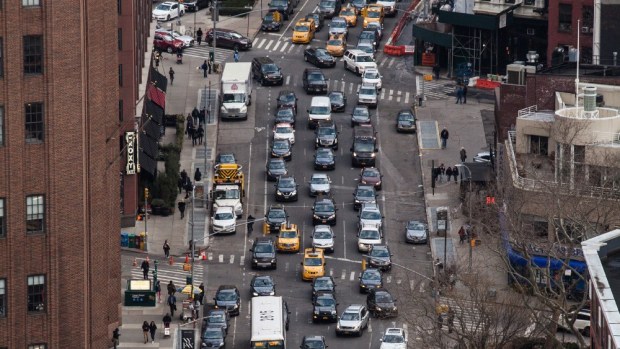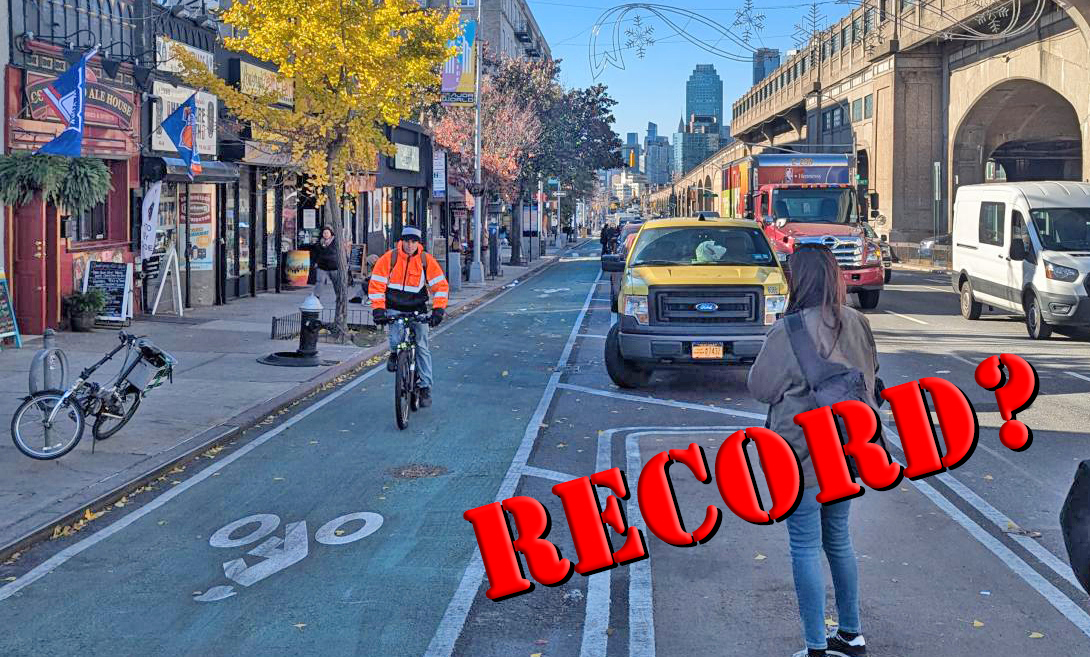
MTA Chairman Pat Foye now claims his agency is facing a financial "five-alarm fire," but one of those alarm bells should be ringing in the basic undertaking of congestion pricing.
Yes, the Federal Highway Administration has taken too long in working with the MTA in completion of the National Environmental Protection Act (NEPA) process. And that delay means that congestion tolling — which is meant to raise $15 billion in bonding power towards the $51-billion 2020-24 capital plan — can certainly not be implemented on time by Jan. 1.
But there is one thing that New York can do all by itself: Make its appointments to the MTA Traffic Mobility Review Board, which was created in the same legislation that created congestion pricing.
That board is in charge of determining some of the basics of congestion pricing: how much the tolls will cost, whether they will be variable by hour, who will pay, etc. As of Sunday, state law says that board can be empaneled, though months ago, it was announced that future board members would meet behind closed doors. This is inconsistent with both Gov. Cuomo and Mayor de Blasio's promises to have most transparent administrations.
Recommendations for the actual congestion pricing structure were originally supposed to be announced by the mobility board before the end of December, 2020, so at this rate, congestion pricing may not kick in until 2022, or the start of the third year of a five-year capital program. The final details of who will pay what have never been worked out.
Many elected officials will lobby for exemptions for those who provide essential services such as police, fire or teachers, low income, outer borough residency, seniors, small commercial-based delivery businesses or other special niches. Some of these exemptions will be adopted to placate the constituents of different elected officials who have to stand for reelection in 2021 or 2022. As a result, the MTA may not be able to count on all $15 billion in funding. A late start for implementation, a downturn in the economy and increasing numbers of people who are going to telecommute on a permanent basis could also result in less revenue.
It could take many months to a year before congestion pricing is set. After Jan. 20, then-President Biden might instruct the Federal Highway Administration to fast-track completion of the congestion pricing environmental review, but that wouldn't result in a finding until months later. And we know that Foye's inevitable New York Times op-ed won't hold de Blasio and Cuomo accountable for their respective inaction delaying implementation.
That $15 billion could have gone a long way in solving the financial crises. Blame the Trump administration, but also blame our local politicians for not doing their job.
Larry Penner is a transportation advocate, historian and writer who previously worked for the Federal Transit Administration Region 2 New York Office. This included the development, review, approval and oversight for billions in capital projects and programs for the MTA, NYC Transit, Long Island Rail Road, Metro North, MTA Bus along with 30 other transit agencies in NY & NJ.






